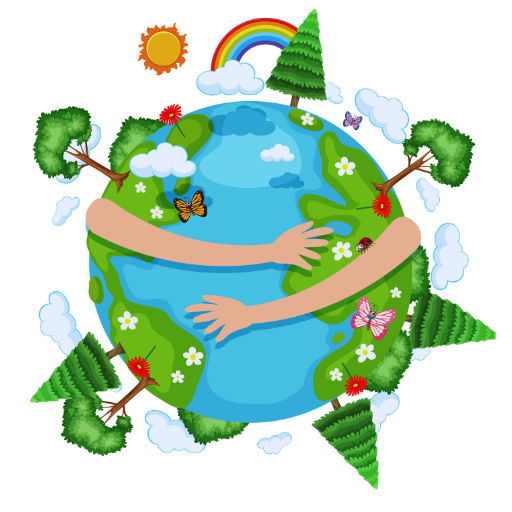LifeWtr vs. Aquafina | Sustainable vs. Traditional Bottle Water
With concerns about tap water quality and the growing popularity of bottled water, choosing the right option can be confusing. In this blog, We have explored the world of bottle water for you, highlighting the traditional brands and their limitations and the rise of sustainable alternatives.
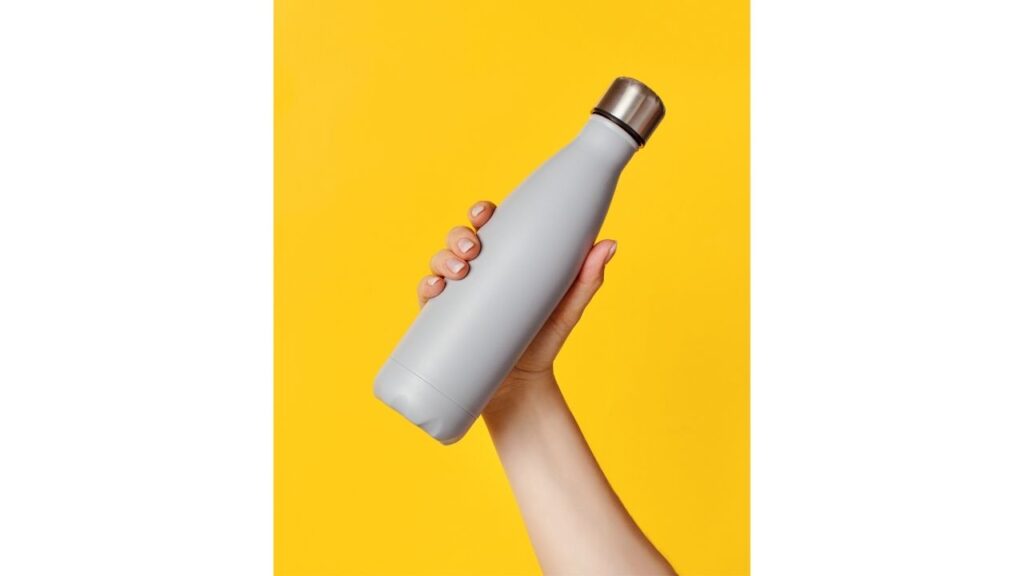
Do you remember those refreshing glasses of water straight from the tap? Sadly, that’s becoming a distant memory. Here’s a reality check :-
- Industrial Pollution: The rise of factories and industries has led to the discharge of harmful chemicals like lead, arsenic, and nitrates into our water sources.
- Agricultural Runoff: Excessive use of pesticides and fertilizers in agriculture contaminates water with harmful residues.
- Climate Change: Erratic weather patterns are impacting water quality, leading to increased algal blooms and bacterial growth.
4 Trusted Sustainable Bottle Water Brands
According to a report by Plastic Soup Foundation, an estimated 1 million plastic bottles are sold every minute globally. A study by the Container Recycling Institute states that in the US alone, only around 20% of plastic water bottles get recycled. This means a significant portion, estimated at over 2 million tons annually, ends up in landfills.
Plastic waste from bottle water is a significant environmental concern. Sustainable bottle water brands acknowledge this and strive to reduce their footprint through recycled plastic, minimal packaging, and alternative materials. Let’s get idea on the 4 most prominent sustainable bottle water brands.
LifeWtr
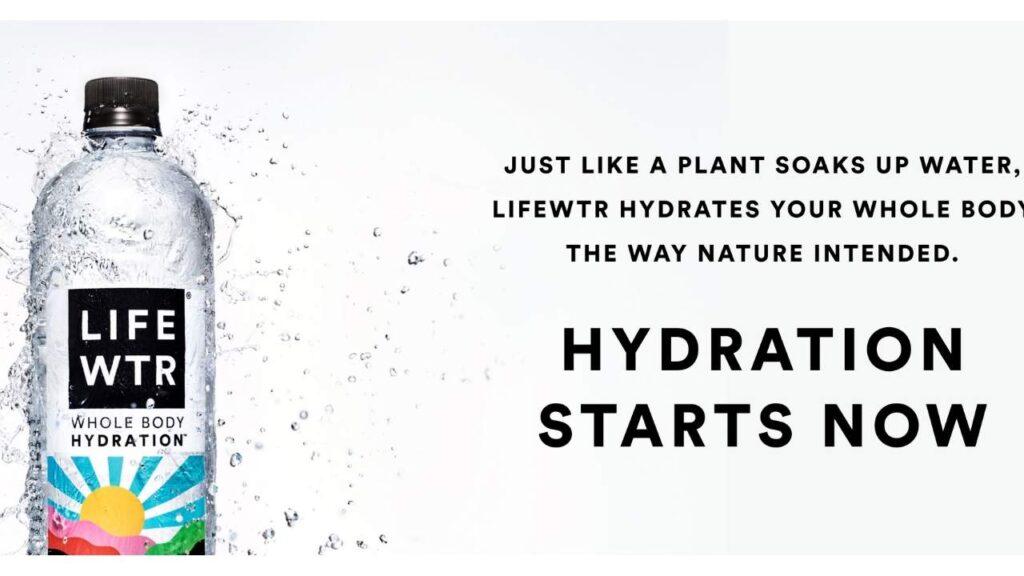
LifeWtr isn’t your average bottle water brand. Owned by PepsiCo, they position themselves at the intersection of sustainability, design, and hydration. Here’s a breakdown:
- Sustainability Efforts:
- Recycled Plastic: LifeWtr uses 100% recycled plastic (rPET) for their bottles. This reduces their environmental footprint compared to virgin plastic.
- Design with Purpose: LifeWtr collaborates with artists to create limited-edition bottle designs. This artistic approach aims to make their bottles more collectible and potentially less disposable. Ideally, people will reuse them instead of throwing them away after a single use.
- Focus on Hydration:
- Electrolytes & pH Balance: LifeWtr purifies water and adds electrolytes for taste and to support hydration. The water is also pH balanced, though the specific health benefits of this are debated.
LifeWtr’s approach is interesting. They acknowledge the convenience factor of bottle water while addressing sustainability concerns with recycled plastic. However, there are some things to consider:
- Environmental Impact: While recycled plastic is better than virgin plastic, it’s still not ideal. Reusable bottles are ultimately a more sustainable option.
- Focus on Design: The emphasis on limited-edition designs might encourage people to collect them rather than reuse the bottles.
Boxed Water
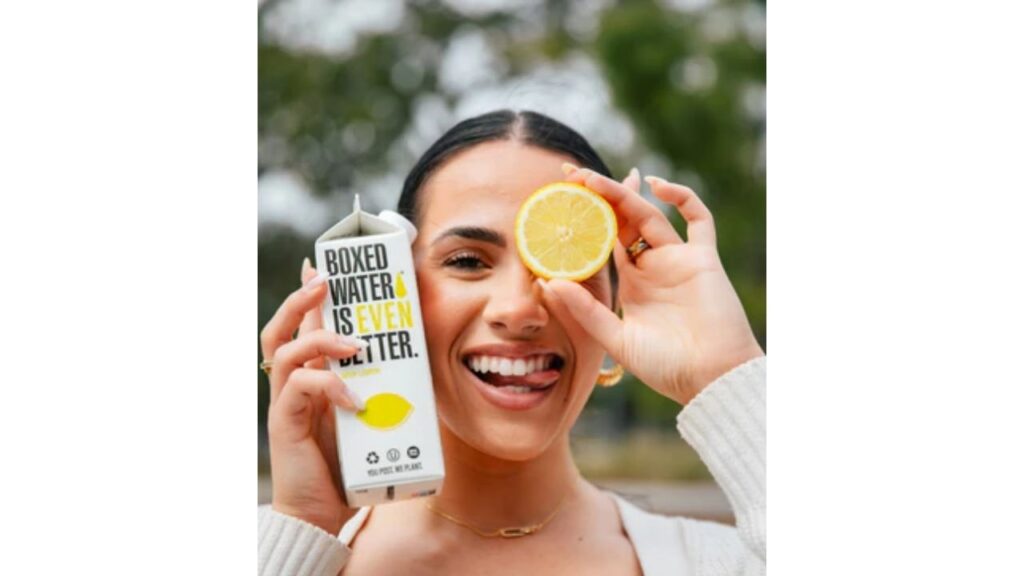
Boxed Water takes a refreshingly different approach to bottle water. Here’s what sets them apart:
- Eco-Friendly Packaging: They ditch plastic bottles altogether. Boxed Water comes in cartons made from 92% renewable resources, primarily paper from sustainably managed forests.
- Reduced Footprint: Cardboard cartons are lighter and take up less space than plastic bottles during transportation, leading to lower carbon emissions.
- Tree Planting Initiative: Boxed Water partners with the National Forest Foundation and plants a tree for every carton sold. This helps offset their environmental impact and promotes reforestation.
- Sustainable Sourcing: They strive to source their paper for cartons from responsibly managed forests certified by the Forest Stewardship Council (FSC).
- Transparent Practices: Boxed Water emphasizes transparency and shares information about their sourcing and sustainability efforts on their website.
While Boxed Water is a clear winner in terms of sustainability compared to plastic bottled water, there are a few things to consider:
- Carbon Footprint of Paper Production: Paper production itself can have an environmental impact. However, Boxed Water emphasizes responsible sourcing and strives to minimize this impact.
- Lining Material: The inside of the cartons has a thin plastic lining to ensure water stays contained. Ideally, this plastic is recyclable, but consumers should check for specific recycling instructions.
Flow Alkaline Spring Water
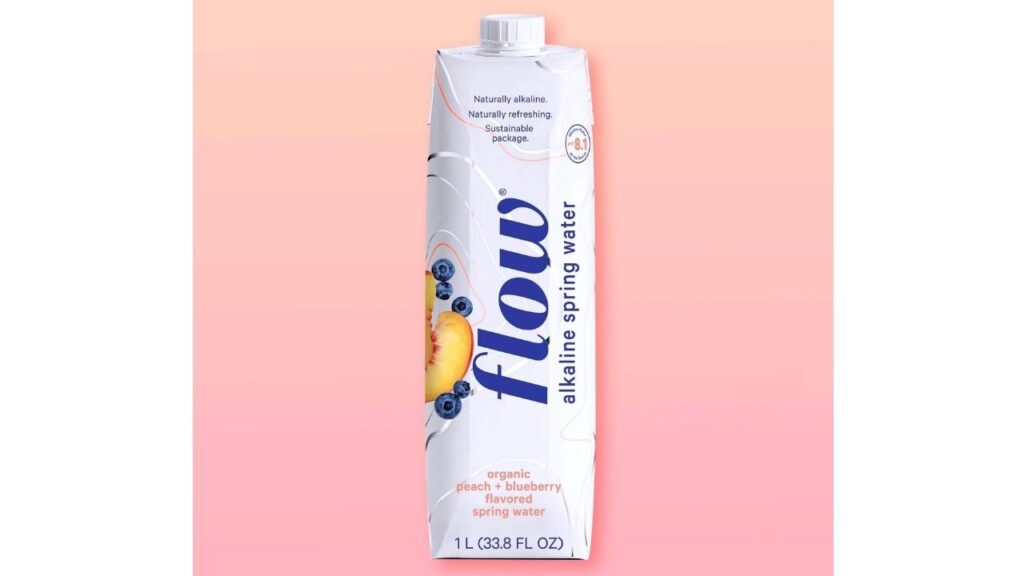
If you’re looking for a bottle water brand that prioritizes both sustainability and healthy hydration, Flow Alkaline Spring Water is a great option. They’re committed to minimizing their environmental footprint throughout their production process. Flow uses 100% recycled plastic bottles for packaging and strives towards achieving zero-waste operations in their facilities.
Additionally, they power their production with renewable energy sources, reducing their reliance on fossil fuels. Beyond sustainability, Flow offers naturally alkaline spring water, which some people believe offers health benefits like improved hydration and better mineral absorption.
Soul Water
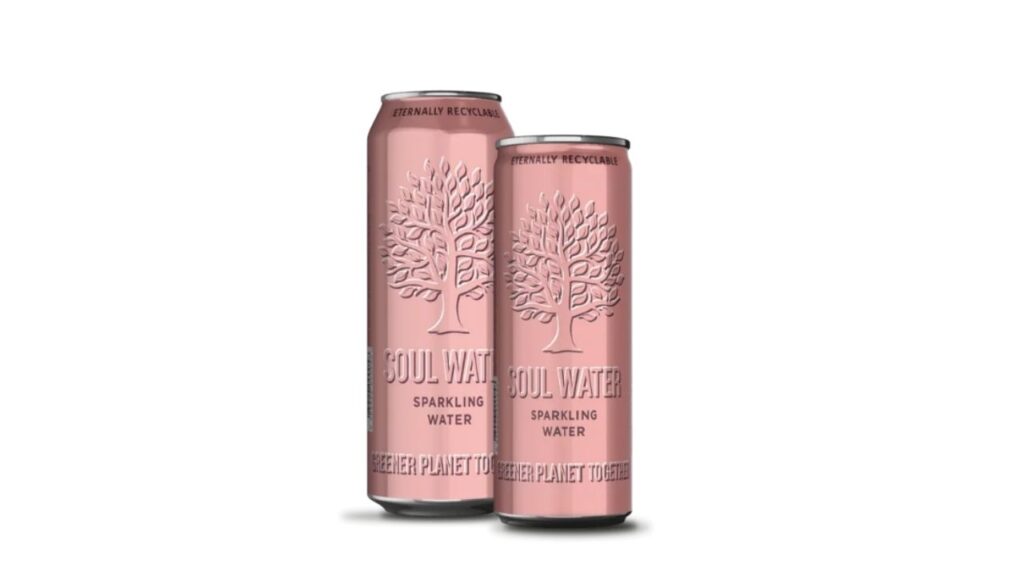
Soul source high-quality natural mineral water as close as possible to their distribution channels. This means they work with local water sources on every continent avoiding shipping emissions. This minimises their environmental impact while ensuring the freshness of our natural still and sparkling mineral water.
Difference between traditional bottle water & sustainable bottle water brands.
| Feature | Traditional Bottle Water Brands | Sustainable Bottle Water Brands |
|---|---|---|
| Focus | Convenience, Taste | Convenience, Sustainability, Social Impact |
| Materials | Virgin Plastic | Recycled Plastic (high % or 100%), Aluminum Cans, Cardboard Cartons (minimal plastic lining) |
| Sustainability Efforts | Limited (recycling initiatives may exist) | Extensive – Recycling, Minimal Packaging, Renewable Energy, Carbon Offsetting |
| Community Engagement | Not a core focus | Local Projects near Water Sources, Water Access Initiatives, Education Programs. |
(Not really sustainable) 9 Brands that process purified water in the market
- Aquafina
- Dasani
- Crystal Gyeser
- Nestle Pure Life
- Essentia Water
- Fiji Water
- Evian Natural Spring
- Smartwater
- Zen WTR
Aquafina
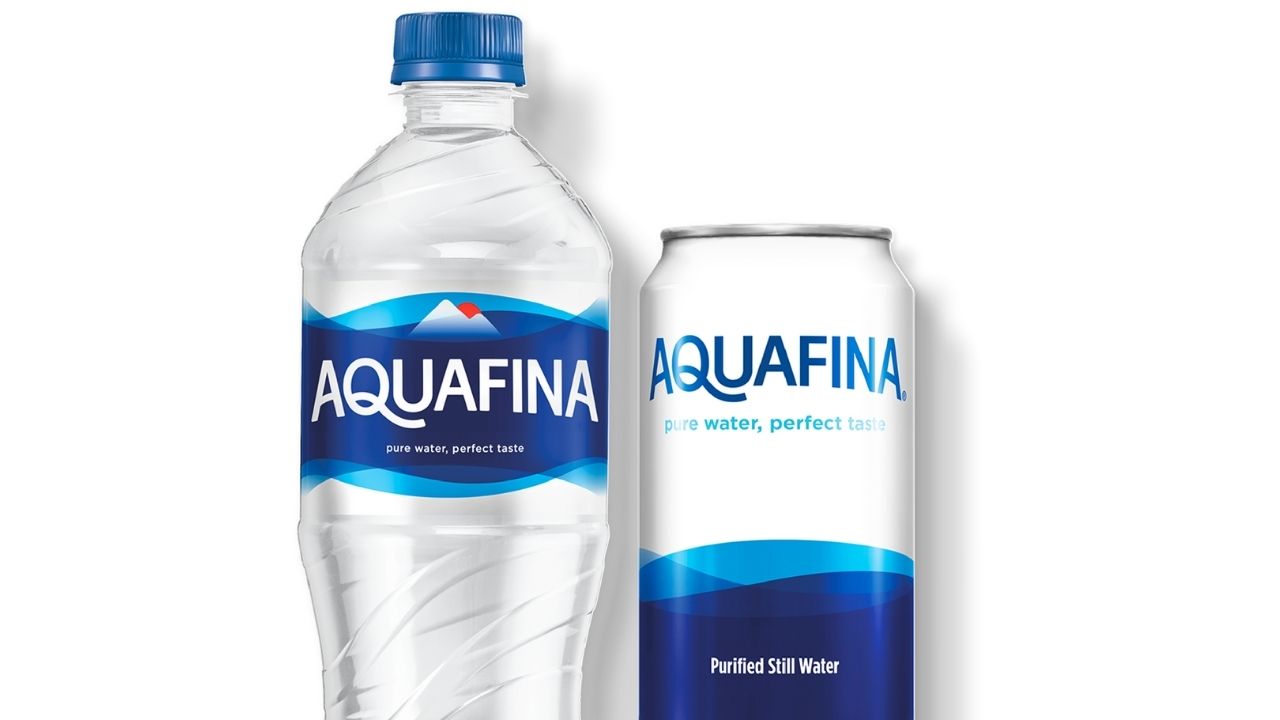
Aquafina is a popular purified bottle water brand owned by PepsiCo. It offers a convenient and portable option for people who prefer bottle water over tap water, for reasons like taste or perceived purity. While their exact purification process isn’t fully public, they likely use reverse osmosis and filtration to remove impurities from municipal tap water sources.
What about the BPA issue in plastic bottles?
Bisphenol A (BPA) is a chemical once commonly used in plastic water bottles. While some concerns exist about its potential health effects, regulations have limited its use in many countries. Sustainable brands often highlight BPA-free plastic in their bottles.
Dasani
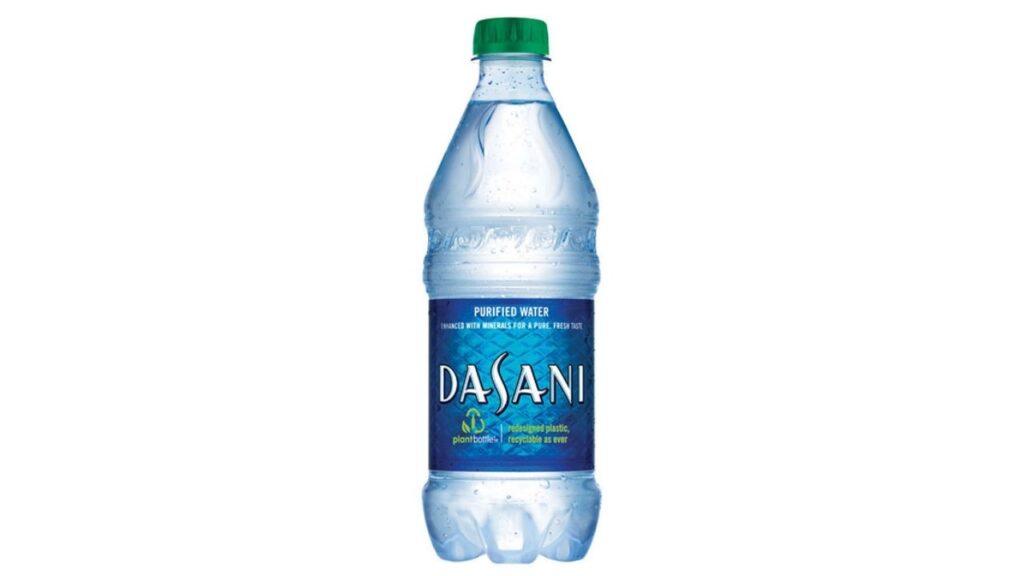
Dasani is a popular brand of bottle water launched in 1999 by the Coca-Cola Company. It’s positioned as a purified water option, aiming to compete with other major bottled water brands. Dasani uses a filtration process to remove impurities from municipal water supplies, then potentially adds back some minerals for taste. They target consumers who seek a convenient and refreshing bottled water experience.
Crystal Gyeser
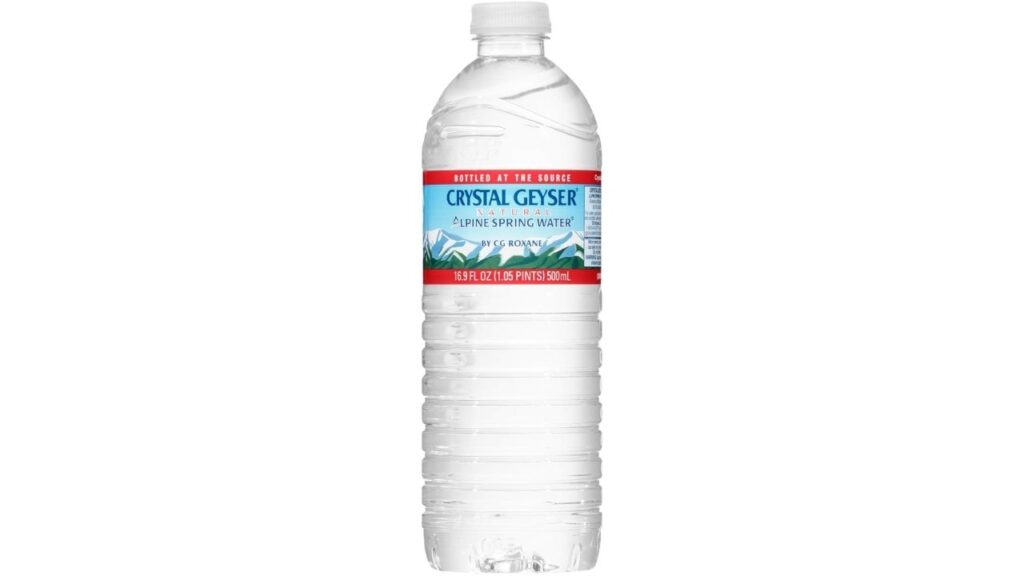
Crystal Geyser quenches your thirst with naturally purified spring water, bottled at the source for a taste of pure mountain freshness. These bottles hold more than just H2O – they capture the essence of pristine mountain springs, offering a refreshingly pure alternative to tap water. Whether you’re looking for a healthy on-the-go beverage or a delicious way to hydrate at home, Crystal Geyser delivers pure mountain flavor in every sip.
Nestle Pure Life
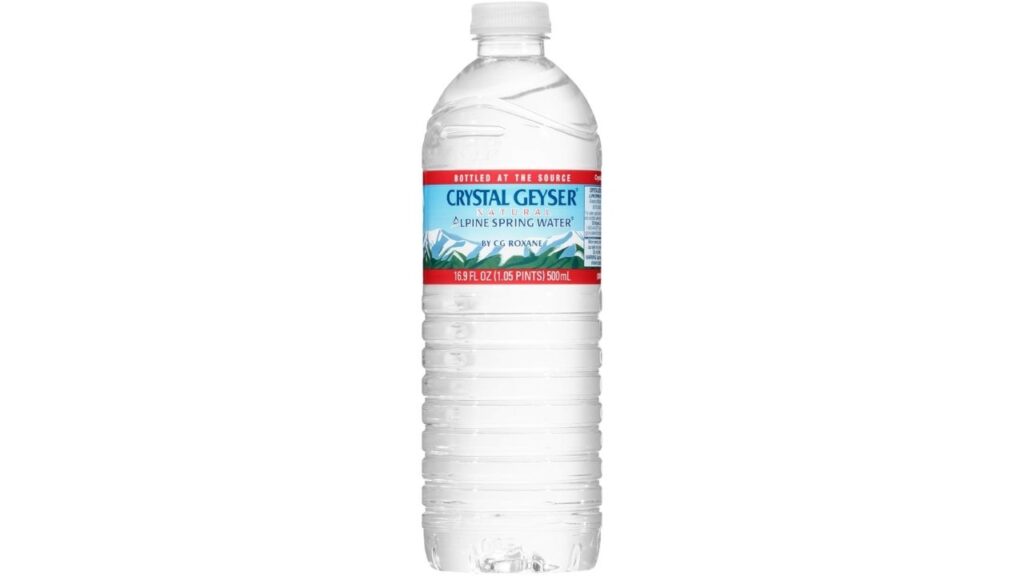
Nestlé Pure Life is a global brand of bottle water offered by either Nestlé Waters (globally) or BlueTriton Brands (North America). They provide a convenient and refreshing option for staying hydrated throughout the day. Nestlé Pure Life is committed to delivering high-quality purified water, aiming to meet the needs of health-conscious consumers who prioritize convenience.
Essentia Water
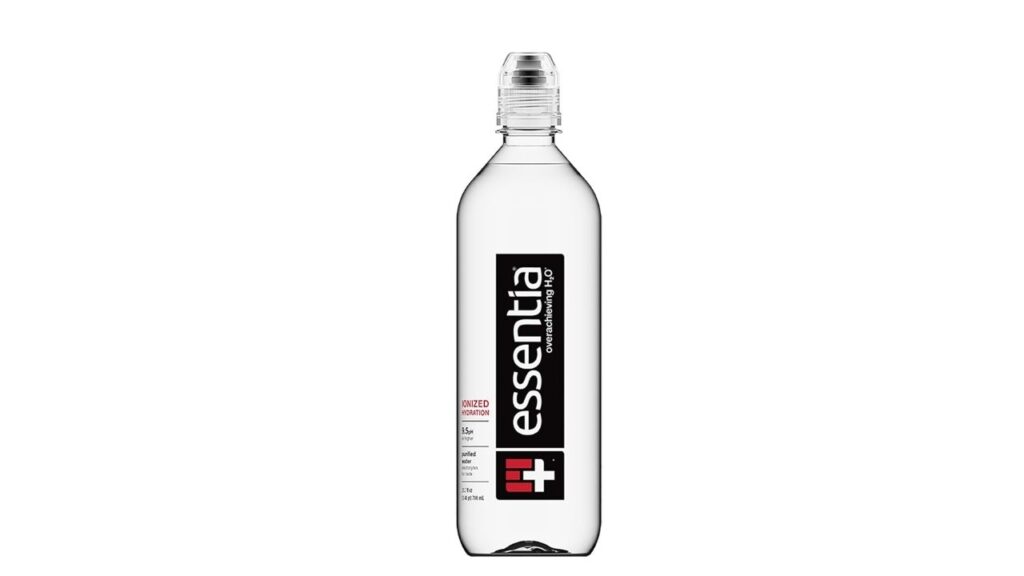
Ditch the ordinary and elevate your hydration with Essentia Water. This brand goes beyond basic purification, offering ionized alkaline water that promises to supercharge your day. Essentia claims their unique process creates a smooth-tasting, electrolyte-enhanced water designed to optimize your hydration and performance. Whether you’re a fitness enthusiast or simply looking for a refreshing upgrade, Essentia positions itself as the water choice for those seeking a next-level experience.
Fiji Water
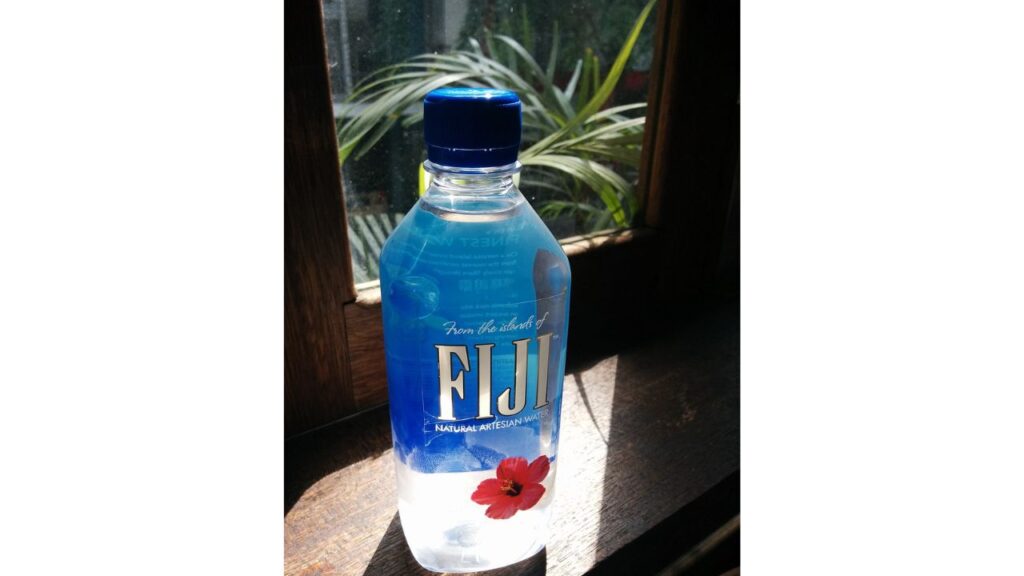
Fiji Water is known for its square bottle and image of pristine island paradise. Marketed as “Earth’s Finest Water,” it promises a taste of luxury and purity. But is it all paradise and perfection, or is there more to the story? This blog post dives deeper into Fiji Water, exploring its source, purification process, and environmental impact. We’ll also discuss the debate surrounding its premium price tag and its competition with local Fijian resources.
Evian Natural Spring
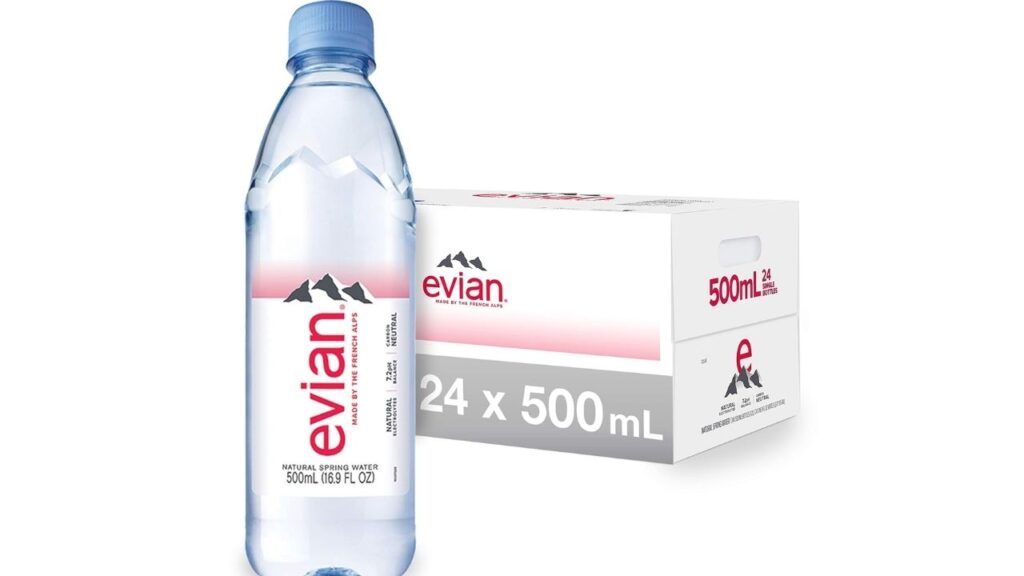
Evian isn’t your average bottle water. It boasts a unique origin story, nestled amidst the pristine mountains of the French Alps. This natural spring water embarks on a 15-year journey filtered through glacial rocks, resulting in a refreshingly pure and balanced taste. Evian is a popular choice for those seeking a premium bottle water experience that goes beyond simply quenching thirst.
Smartwater
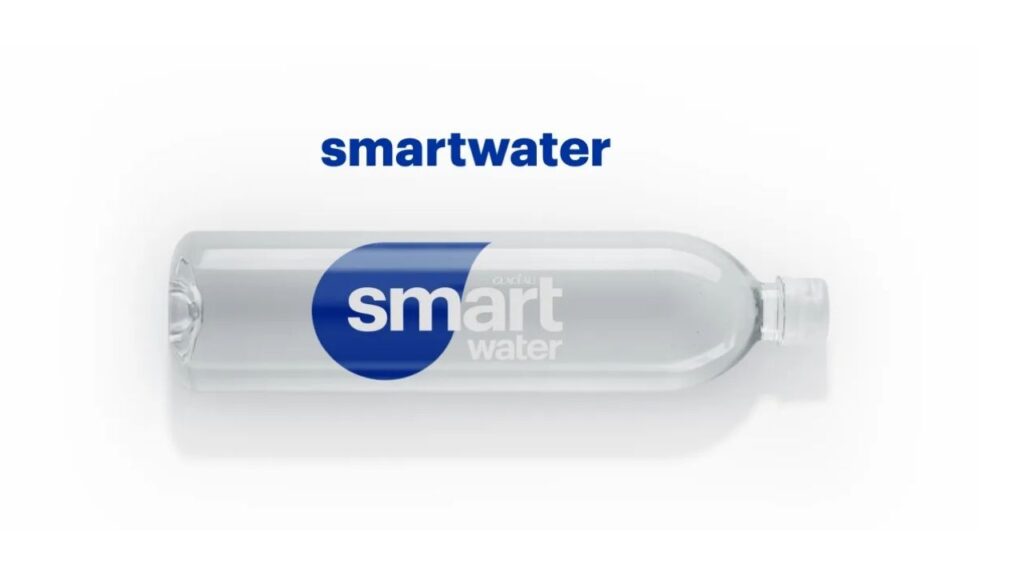
Smartwater positions itself as a premium bottle water brand offering more than just hydration. Here’s a quick intro:
- Electrolyte Focus: Smartwater boasts an electrolyte blend for enhanced hydration, targeting athletes and those seeking a more “functional” beverage than regular bottled water.
- Vapor Distillation: Smartwater uses vapor distillation, a purification process that removes most minerals and impurities from tap water.
- Clean and Crisp Taste: This process results in a clean and crisp taste, appealing to those who dislike the taste of mineral-rich tap water.
- Marketing & Image: Smartwater heavily invests in marketing, projecting a sleek and modern image associated with health and wellness.
Zen WTR
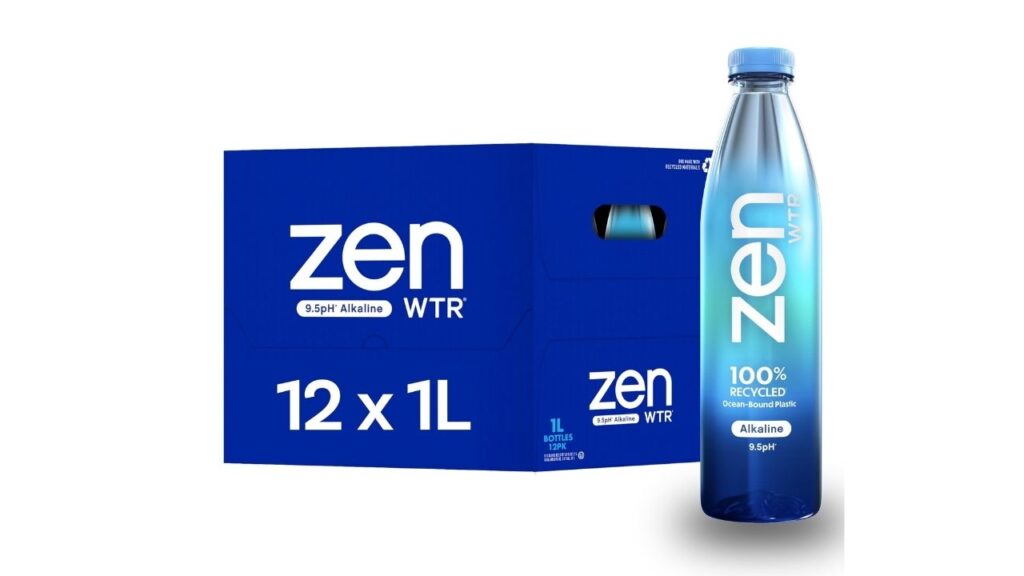
Zen WTR is more than just bottle water. It’s a minimalist approach to hydration, focusing on pure, clean water sourced from artesian springs. They prioritize eco-conscious practices and a sleek aesthetic, aiming to quench your thirst and elevate your everyday routine.
Which shall I choose Aquafina or LifeWtr?
Here’s when to choose which:
Choose LifeWtr if:
You prioritize sustainability and recycled materials.
You prefer a slightly flavored and potentially more hydrating water with electrolytes.
You like the artistic bottle designs and might reuse them.
Choose Aquafina if:
Price is a major concern.
You prefer a plain, neutral-tasting water.
Convenience and easy availability are important factors.
Ultimately, the best choice depends on your personal priorities.
Additional factors to consider:
Tap water quality: If your tap water is safe and palatable, consider a reusable eco friendly water bottle and filtration system for the most sustainable option.
Health concerns: If you have specific health concerns or require electrolytes for intense activity, consult a healthcare professional for guidance.
We hope this information helps you make an informed decision!
Limitations of Bottle Water in the Market
Bottled water offers convenience and portability, but there are several limitations to consider:
- Environmental Impact:
- Plastic Waste: Plastic water bottles are a major contributor to plastic pollution. The production, transportation, and disposal of these bottles create significant environmental burdens.
- Energy Consumption: Manufacturing plastic bottles requires a lot of energy and resources.
- Microplastics: Plastic breakdown can release microplastics into the environment, harming ecosystems and potentially entering the food chain.
- Cost: Bottle water is generally much more expensive than filtered tap water.
- Health Concerns:
- Microplastics (Potential): While research is ongoing, some studies suggest potential health risks associated with ingesting microplastics from plastic bottles.
- Leaching Chemicals: Some chemicals used in plastic bottles, like BPA, might leach into the water, raising health concerns. However, regulations around these chemicals have become stricter.
- Quality: In many cases, bottled water comes from the same municipal sources as tap water, but has undergone additional treatment. Tap water quality varies by location, but meeting regulations ensures safety.
Conclusion
We learned about the environmental impact of plastic water bottles, from the massive amount of plastic waste they generate to the energy required for production and transportation. The potential health concerns associated with microplastics and chemical leaching from plastic bottles were also discussed.
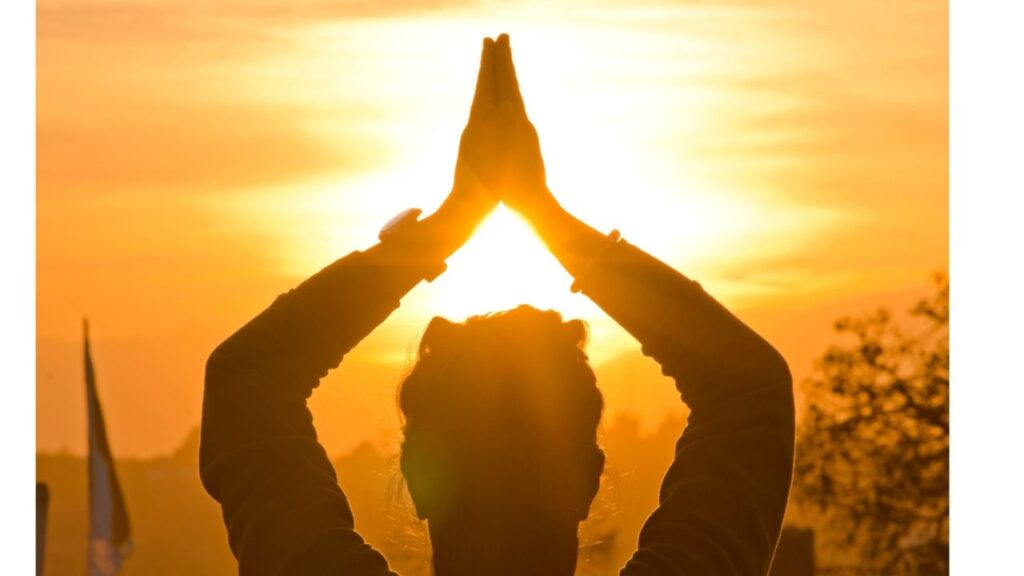
Thankfully, sustainable bottle water brands are emerging as a more responsible option. These brands prioritize recycled plastic, minimal packaging, and alternative materials like aluminum cans or cardboard cartons. Some even go beyond by investing in local communities near their water sources and supporting water access initiatives.
We looked at some of the leading sustainable bottle water brands like LifeWtr, Boxed Water, Flow Alkaline Spring Water, and Soul Water. Each offers unique features, whether it’s using 100% recycled plastic with artistic designs (LifeWtr) or eco-friendly packaging made from renewable resources (Boxed Water).
Let’s keep the conversation going – share your thoughts and ideas in the comments below 🙂
If you have any further queries in this topic, You can Email us at contact@wecareearth.com. Thank You for being eco conscious! We warmly welcome you at wecareearth.com |
